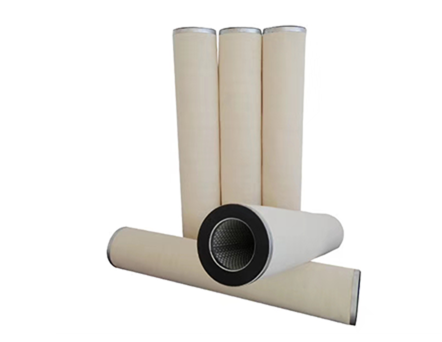 Tel:
+8618931101301
Tel:
+8618931101301
12 月 . 03, 2024 17:46 Back to list
sintered filter element
Sintered Filter Elements A Comprehensive Overview
In today's world, where efficiency and purity are paramount in industrial processes, sintered filter elements have emerged as a vital component in various applications. These advanced filtration solutions are essential in industries ranging from pharmaceuticals and food processing to petrochemicals and wastewater treatment. In this article, we will explore what sintered filter elements are, how they are manufactured, their advantages, and their applications.
What Are Sintered Filter Elements?
Sintered filter elements are porous materials made through a process called sintering, which involves compacting and heating granular materials until they adhere together without melting. This results in a solid structure with numerous fine pores that allow liquids and gases to pass through while trapping solid particles. Typically made from metals, ceramics, or polymers, sintered filter elements can be tailored to meet specific filtration requirements, offering varying pore sizes and degrees of porosity.
Manufacturing Process
The manufacturing of sintered filter elements begins with the selection of appropriate raw materials
. Metals such as stainless steel, bronze, or nickel, and ceramics such as alumina or zirconia are commonly used. The raw material is pulverized and mixed with a binding agent, before being shaped into the desired form—often cylindrical or disc-shaped. The mixture is then subjected to high-temperature sintering in a controlled environment, where the binding agent is removed, and the particles bond together, creating a stable, permeable medium.Following the sintering process, the filter elements are often subjected to further treatments, including machining, surface finishing, and sometimes additional sintering steps to enhance their performance and durability. The result is a robust filter element capable of enduring harsh operational conditions while maintaining its filtration efficiency.
Advantages of Sintered Filter Elements
sintered filter element

One of the most significant advantages of sintered filter elements is their durability. Unlike traditional filters, which may degrade or clog over time, sintered filters exhibit excellent longevity due to their solid structure. They can withstand high temperatures and pressures, making them ideal for demanding environments.
Sintered filter elements also offer superior chemical resistance. Depending on the material chosen for the filter, they can resist a wide range of corrosive chemicals, ensuring consistent performance even in aggressive media. Furthermore, their ability to be manufactured with customizable pore sizes allows for selective filtration, making them suitable for various applications that require precise filtering capabilities and the removal of specific particle sizes.
Another notable benefit is their ease of cleaning and maintenance. Sintered filters can often be cleaned through backwashing, ultrasonic cleaning, or chemical methods without losing their structural integrity. This leads to lower operational costs and less downtime, contributing to overall efficiency in the processes where they are employed.
Applications
The versatility of sintered filter elements makes them applicable in numerous fields. In the pharmaceutical industry, they are used for sterile filtration processes, ensuring product purity. In food and beverage production, they play a crucial role in maintaining hygiene and extending shelf life by preventing contamination.
In the petrochemical sector, sintered filters are utilized in catalyst recovery and process fluid filtration, ensuring that impurities do not affect the quality of the end products. Furthermore, in wastewater treatment plants, they are instrumental in cleaning effluents by removing solids and other contaminants.
Conclusion
In summary, sintered filter elements are indispensable tools in modern filtration technology. Their unique manufacturing process, coupled with their robust characteristics and broad application range, positions them as leaders in various industrial filtration processes. As industries continue to prioritize efficiency, sustainability, and quality, the role of sintered filter elements is only set to grow, providing innovative solutions to meet the challenges of tomorrow's filtration needs.
-
How to choose a high-efficiency air filter? Here comes a professional guideNewsOct.21,2024
-
Air filter: multi-field application, protecting fresh airNewsOct.17,2024
-
Carbon air filter: a green guard to protect air qualityNewsOct.16,2024
-
Can activated carbon completely remove indoor odors and pollutants in air purification?NewsOct.14,2024
-
How to filter air efficiently and ensure indoor air quality?NewsOct.12,2024
-
Activated carbon filter: the invisible guard of clean water lifeNewsOct.11,2024

 Email:
Email:





